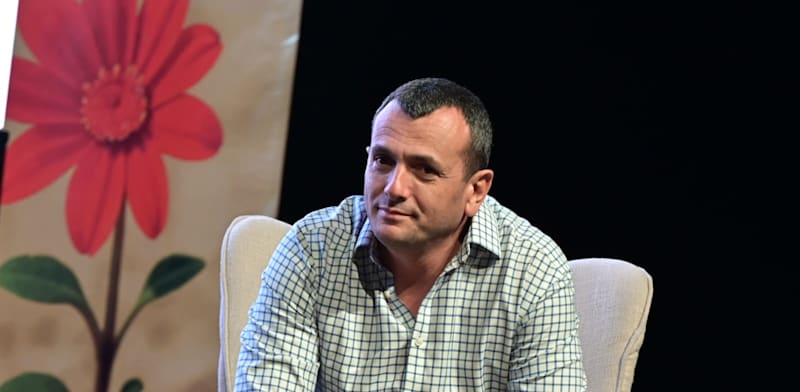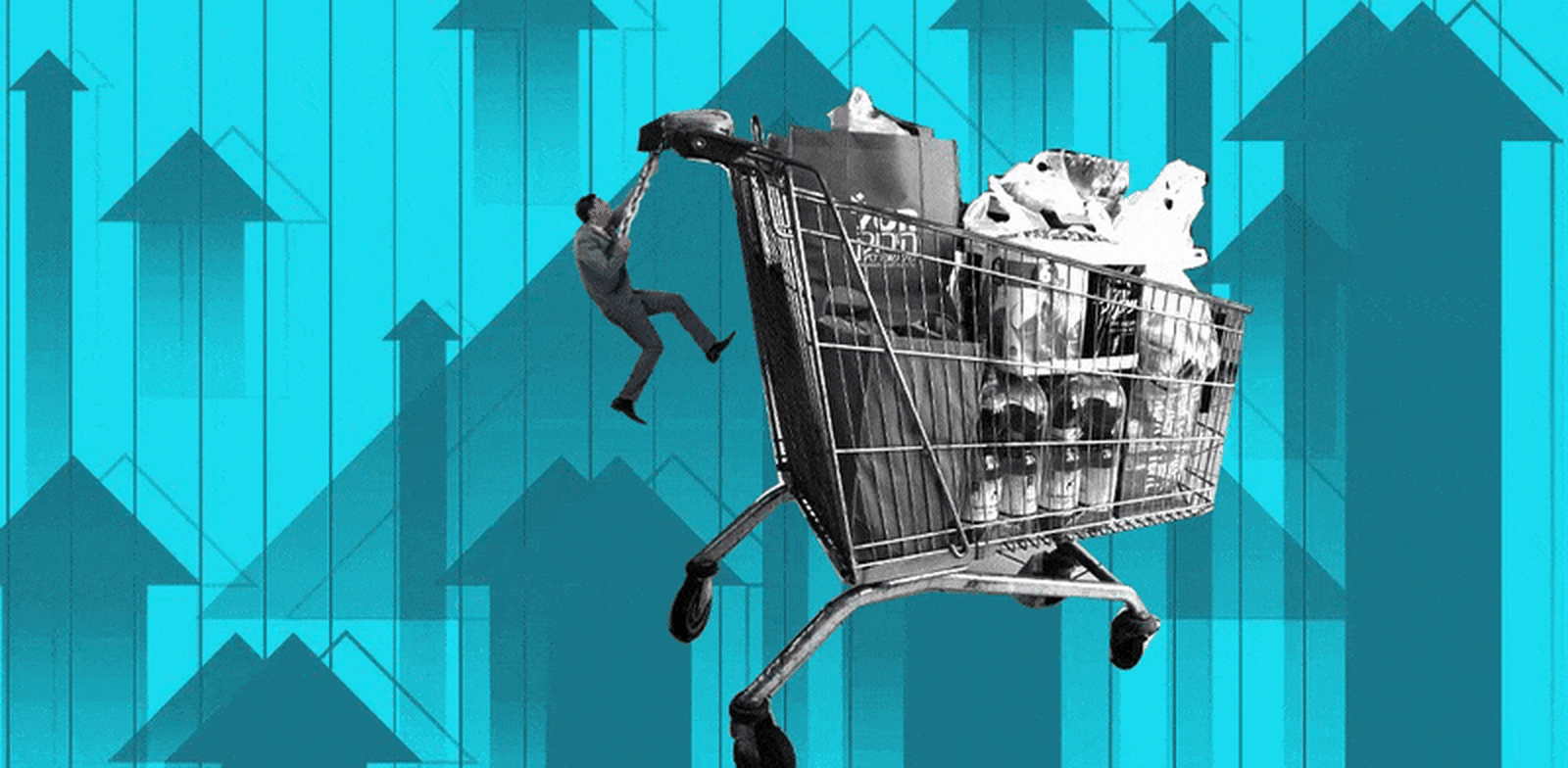Strauss Group (TASE: STRS) Shai Babad told the Globes Business in the South Conference that he is concerned. As CEO of one of the country’s biggest food groups with factories in the periphery, in the north and south, and as a reserve brigade commander and former director general of the Ministry of Finance, Babad is aware of the challenges. These include operating factories that are under fire, caring for employees, some of whom have been injured and some of whom have been on reserve duty for hundreds of days, while he himself is part of the time on reserve duty. All this while divisions in the country are growing.
“It’s clear that it’s eroding, businesses are falling apart, houses are falling apart,” he told “Globes” editor-in-chief Naama Sikuler. “In the reality we find ourselves in, there is no choice. Defense needs have risen, enlistment rates are falling. It’s harder for people, and so the IDF is trying to find solutions on how to bring more and more people into the reserve circle in order to reduce the burden.
“If we tell people you will do 100-150 reserve duty days a year, even 70 reserve days a year – that’s impossible. People have lives. They didn’t choose a military career, they chose a civilian career, along with the fact that they understand their duty as citizens of the State of Israel and they deserve a lot of appreciation for that. But we are not able to do that, these amounts.”.
He adds, “I don’t think it’s an economic question. In the end, it’s always possible and necessary to incentivize and help and really help the reservists, and it’s always possible to do it much more, so that they are harmed as little as possible, especially when they are carrying such a heavy burden. In the end, it’s a civilian question. How many people, and I’m putting the haredim aside, don’t serve in the army? How many people have left reserve service? How many people dropped out of service? How many people didn’t even serve in the army and evaded regular service in the army at all? In the end, it is an understanding that every citizen in the State of Israel asks themselves – we have rights in this country, but this country can’t be taken for granted.”
“Some of our employees experienced difficult things on October 7”
“October 7th is a very, very big reminder of why we need to defend ourselves, and how important our security is and what every citizen is doing. When civilian awareness will be much higher that it is our obligation to bear this burden, then the burden on that population group that the amount of reserve duty, and ultimately it is not 50% of the population that does 300 days reserve duty, and I wish that it was 5% of the population doing those 200 or 300 days reserve duty.”
RELATED ARTICLES
Babad, who was called up to the reserves on October 7th, says that along with the brigade’s preparations, it was necessary to take care of three main things at Strauss itself. “The first is business continuity – understanding that we have factories here in the area with lots and lots of employees, some of whom have also experienced difficult events. We have an employee who was murdered in Beeri, Ohad Cohen, with his two-month-old baby daughter and his mother who were murdered, and the manager of the coffee factory in Lod whose sister, her husband and children were murdered. We took care of all our employees, suppliers and farmers, and those who were affected in the immediate circle.”
“The second circle was to see how we create business continuity. We opened the factory in Sderot 3-4 days after the attack, then the factory in Bror Hayil and finally Yad Mordechai, which was a closed military area. The third circle was a very extensive mobilization of hundreds of employees into the reserves, and how we respond to the families, and to the fact that there are now quite a few employees who are missing and also employees who were injured. One of the missiles fell on a factory in Sderot and then a missile fell in the north as well. We have quite a few factories, so how do we continue to work in this situation?”
Babad says that despite everything, employees continued to come and insisted on coming to work. “It’s truly admirable. Both people who live here in the south and people who live in the north, their commitment to employment and factories, their commitment to work, being on notice for a few seconds to enter sheltered areas and living like that not for a day or two but sometimes for weeks on end in order to continue to create business continuity, these are our heroes during this period.
“The more we create an economy here, and the more employment there is here, the more life we will create here, and Strauss has had and will have a very great commitment to continue investing here in the south and also in the north, to continue investing in factories. In the coming years, we will upgrade our salt factory, we will continue the partnership with Kibbutz Bror Hayil, we plan to continue investing hundreds of millions in the north in a new factory for milk substitutes, to invest in Israeli industry and employment.”
“I’m most worried about us”
One of the things that concerns Babad, in addition to business continuity, is the division among Israelis. “Unfortunately, I see the same discourse of October 6 repeating itself, and the division and the rift and the camps: yes Bibi, no Bibi, yes reform, no reform, yes the head of the Shin Bet, no the head of the Shin Bet, yes the Chief of Staff, no the Chief of Staff. And you turn on the news and it looks like we haven’t learned anything.
“I’m not worried about Hamas, Hezbollah, or the Iranians. I’m most worried about us. In my opinion, the Iranians are sitting in Iran rubbing their hands and saying, ‘Listen, we can stop firing missiles at Israel. They’re destroying their own values in an excellent way. Their quarrels, division, and rift are finishing them off.’ That’s what scares me the most. In the months after October 7, there was insane mutual support here. Everyone got involved, everyone understood for a moment the magnitude of the hour. We put all the quarrels aside and simply got involved and understood that our existence really depends solely on our unity and our mutual support and our ability to live here together. We don’t really have to agree with all opinions, but we do have to accommodate and yes, we can love and yes, we can accept. And we did that for a very short period of time and it’s as if we’ve forgotten. And all that divisive discourse is repeating itself, and that worries me a lot. We need to be worthy of all the people who gave their lives and all the soldiers who are fighting.
Babad continued, “This is our behavior as a people, and I am currently leaving the leadership out of it. It starts with our discourse and how we behave towards each other. It starts at dinners, at gatherings with friends and it continues to the workplace and it expands in larger and larger circles. We must try to find the discourse that connects and unifies to build that mutual support and tell our common story of why we are here.
“We have a tremendous responsibility for what our grandparents went through”
“I hear about people and friends who are leaving the country, and it is as if the common story of the founders from 1948 has disappeared. There is no common story anymore. We have a tremendous responsibility for what our grandparents went through so that we can live here and say that this is our country.”
Following the war, the cost of living is also rising with a wave of price increases, the last one just a month ago, in which quite a few companies such as Strauss itself, Tnuva, Osem, Unilever and Diplomat have raised prices. Babad was careful not to talk about the price increases due the Competition Authority’s probes, but noted that while overseas activity is thriving, especially after the exit in which Sabra and Obela were sold to PepsiCo for NIS 900 million a few months ago, the company, like the others, is dealing with increases in raw material prices. “Cocoa has risen by more than 300% in the past year and a half, coffee has risen by more than 100%, and only in Brazil have there been price increases of 100%. These things have an impact, and at the end of the day, it’s our last resort. We do everything so that the last resort is to pass on prices to the consumer and make price increases, but there are situations in which we don’t have this privilege.”
Full disclosure: The conference was held in cooperation with Strauss Group, Netivot Municipality, Bank Leumi, AIG, and Doral.
Published by Globes, Israel business news – en.globes.co.il – on May 26, 2025.
© Copyright of Globes Publisher Itonut (1983) Ltd., 2025.







